|
These are unprecedented times in our world. There is a lot of uncertainty. Parents and children do not know when they will return to school. We need to social distance and stay home, both telework and teleschool. I have gleaned resources from a variety of social media and complied them in no particular order. The resources are for boredom, to support homeschooling, to support teens, young adults and adults who may need recovery resources. There is no great organization to this list, and I am open to modifying and adding to it, please just send me an email or a message. And feel free to share this list with others so that they too can fight boredom or access resources they need.
Please stay safe during the Covid 19 crisis. Please support businesses where you can. Please have good practices to prevent the spread. Mindy RESOURCES FOR PEOPLE/CHILDREN AT HOME Spectrum and Xfinity are offering free internet to assist with kids at home Class Central - offers 450 free online classes from Ivy League Colleges Coursera Khan Academy Weareteachers.com Ideas: : sensory tables Calming jars Board games Card games to enhance math skills Edible science Balloon experiments Science experiments with office supplies Websites: Scholastic.com - free online courses www.switcheroozoo.com www.funbrain.com www.kids.nationalgeographic.com www.pbs.org www.reading.ecb.org www.starfall.com www.seussville.com www.storylineonline.net www.abcya.com www.highlightskid.com www.adventuresinfamilyhood.com (20 virtual field trips) www.familyguide.com (110 activities) www.adventureacademy.com (a membership organization) www.kidsactivitiesblog.com www.havefunteaching.com/resources/relief-packs www.weareteachers.com https://kidsactivitiesblog.com/135609/list-of-education-companies-offering-free-subscriptions/?fbclid=IwAR1XcGrCPeMvUqOflINTz5cPf25KD5s579PefwAGJaR7YE599tXuYAOQUGA https://growingbookbybook.com/online-literacy-resources/?fbclid=IwAR1PONI6akXXInvwdxdj85tb2-80j39Afcy9AryKklcaOfn7pxmRBr14O8I https://www.playbill.com/article/15-broadway-plays-and-musicals-you-can-watch-on-stage-from-home?fbclid=IwAR3Gln1MstH8bpxLVQk0rZ0uq60rvt8Yrm4VkgxRVJHmm8NAE06qv2vxuPI https://www.understood.org/pages/en/school-learning/for-educators/ https://www.edutopia.org/ www.education.com https://www.nypl.org/ - NY Public Library has thousands of free titles Lunch Doodles with Mo Willems kennedy-center.org/education/mo-willems Other Ideas: There are online cooking classes and music classes Virtual Tours, live cams and field trips Cincinnati Zoo Monterey Bay Aquarium Georgia Aquarium National Aquarium Baltimore San Diego Zoo Yellowstone National Park House Zoo Virtual Farm Tour Us Space and Rocket Museum Huntsville Al Discovery Education Virtual Field Trips The Louvre The Great Wall of China Boston Children’s Museum Metropolitan Opera - Nightly Streaming West Chester Public Library Scavenger Hunt National Museum of Anthropology, Mexico City MASP, Sao Paulo Uffizi Gallery, Florence H Paul Getty Museum Van Gogh Museum Amsterdam Rijksmuseum, Amsterdam Pergamom Museum, Berlin National Museum of Modern and Contemporary Art, Seoul Musee d’Orsay, Paris National Gallery of art, Washington DC Guggenheim, NY British Museum, London Audible is offering free books for ages 0-18 YMCA is offering 60 free online classes Attitude Magazine (online for ADHD resources) Online Schools: Laurel Springs Whitmore School Fusion Academy Lindamood Bell Goal www.goalac.org Our Friends at Red Mountain Sedona created a similar list for those who need recovery resources: 1. Alcoholics Anonymous
4 Comments
Every so often a person gets lucky. And that was how I felt when I volunteered to be bumped from a flight and received a very generous airline. I decided to use that credit to tour programs I would not have otherwise been able to visit. I chose to go to Israel. In a week long visit I had the privilege of visiting and getting to know 4 very distinct programs. The Alexander Muss High School is a semester abroad program located in Herzliya. Located on a beautiful campus, teens from all over the world take classes in English. I was thrilled to be able to sit in on a history class. All the kids were engaged and thoughtful in the questions that they asked.
Aardvark is a gap year program with locations in both Tel Aviv and Jerusalem. Living in fully furnished apartments, students live like locals and explore opportunities with internships and volunteerism. College credit can be earned through the American Jewish University. There are so many add ons I am not sure how a person chooses only one. Switching gears I was welcomed to Retorno, a 12 step model rehab program. There are single gender programs and an english group as well as hebrew speaking treatment. I was welcomed with a lovely horseback ride, up the ridge, overlooking a peaceful valley of biblical importance. The setting is serene and beautiful and just where you would want to be when doing emotionally difficult work. In addition to horses, dbt, sports therapy, yoga, and a holistic approach is used. Unique to Retorno is the use of DHEA to support long term recovery. My final visit was to Free Spirit, an 8 - 10 week program located on a kibbutz at the base of the Ha Carmel forest. Free Spirit is an experiential program, empowering young people, through routines of daily life as well as multiple expeditions. Student's projects were seen throughout the kibbutz. I had a chance to meet with students and they were both insightful and they were thriving. I highly recommend that if anyone is ever bumped from a flight you take advantage of the opportunity, break out of your own comfort zone, and go and explore the world!  Summer is winding down and it has been a wonderful summer of travel and learning. The travel began in Northern Utah. Ogden was home base for a few days. I was able to visit with old friends and new friends. Day one began with a tour of Viewpoint Center, a sub acute psychiatric program. Neighboring Elevations and Seven Stars were lovely and gracious, opening up their campus for touring. Day two began in Logan at Logan River Academy. How wonderful to be able to spend the day with the Logan River family. Then off to Solstice and The Journey Home to visit with the girls. Thank you Kate for all that you do! For those that don't know she is simply a dynamo, very impressive. Day three saw a change in geography and accommodations. Waypoint Academy is located in the foothills of the Snowbasin Ski area. The vistas are breathtaking. The program is warm and homey and the boys were open and forthcoming. Next stop was Eva Carlston, after I ran late and got lost. They were nothing but gracious at my own mistakes. Thank you Allison. There I found myself with a great clinical team and lovely young women. I ended the day visiting with a student at Youth Care. I moved locations toward the south and stayed in Provo. I had the pleasure of touring the Discovery family of programs. Discovery Academy, Discovery Connections and Discovery Ranch. Each of these programs had a different feel and worked with a different type of student. Thank you to the Discovery for such a great day. I truly enjoyed my last day in Utah. I toured The Heritage School and then New Haven Academy. I loved my time at Heritage with Matt and Ian and learning about how they are becoming one of the most sensory sensitive program there is. I also loved my time at New Haven. There was such a vulnerability that the girls could share with me. I feel honored and humbled to have had such a wonderful week touring. I always appreciate a good learning opportunity. My next big trip was to Asheville, Black Mountain, more specifically, for Expanding Recovery for Young Adults, Conference and Wellness Retreat. After some bad travel experiences, and finally getting there, I was honored to be learning from Noah Levine who founded Refuge Recovery. There were keynotes, mediation, break out sessions and a lesson on Wilderness skills. One member of our group got fire started with nothing but steel and a rock. Others were spending time doing 12 Step Yoga. What a fabulous event. I can't wait to see what happens next year! Thank you to Deara Ball from SWUS. SWUS was a sponser of this event. Deara is a bundle of energy and deserves many kudos for putting on an amazing event. This week Kate Gosselin once again graces the cover of People Magazine. Her son Colin is missing from the family photo.
The Gosselin family has always been controversial because of how much they have shared of their lives in the public forum. There is now even more controversy over how Colin has been sent away to work on his special needs, especially given his young age. He is only 12 years old. As a therapeutic educational consultant and parent to someone with special needs, the decision to send a child to treatment is not an easy one. I applaud her decision to seek help for her son. I admire her for trying to be honest, help bust stigma around treatment, and doing the best she can for her son. I also applaud her for keeping details secret, as with any medical issue, this will be Colin's story to tell. Sending a child to treatment, whether it be a residential treatment center or therapeutic boarding school can happen for a variety of reasons. There may be a severe enough learning disability that the child is not progressing in either public school nor a therapeutic day school setting. There may an autism spectrum disorder where resources to match individual needs are not available. There may be an emotional coping issue to the point that there are safety concerns for both himself or others. The family may have exhausted all local and outpatient resources, which is usually the case, prior to the decision to send a child to treatment. Additionally, in the case of multiple births, there may be an in utero organic brain development issue. At this point in time, when all else has been tried, a 24/7 therapeutic environment is the only one that can help a child learn the skills they need to learn to cope in their world. Private residential treatment programs are not institutionalized. They are often home like setting. They often use animal and brain based therapies to help a younger child heal. The people that I have encountered work in the field do so because they truly want to help children heal. This is tough work and takes a certain type of person to work with children with this high level of need. It also takes a certain type of Mom and Dad to be able to say, we have tried absolutely everything and we need to do more. It is always great to be able to get on the road, tour wonderful programs and meet all those who are helping so many different types of students. Trips this past spring included visiting programs in Kansas, Texas, Hawaii, California, and Wisconsin. Here are some of the highlights. In Texas, I was honored to be invited to attend the graduation of a student from the Fushear Transition program. Everyone was beaming and congratulating the beautiful young lady on all of her hard work and accomplishments. We were invited guests to Rogers Memorial annual fundraising luncheon. All the invitees donated stuffed animals for the children who are currently being treated at Rogers. For this year's Keynote address, the speakers at the luncheon chose the topic of Scrupulosity. Scrupulosity is a distortion of a person's religious views to the point of interfering with daily living. Rogers Memorial incorporates their Chaplin Corp as an integral part of the treatment team when treating Scrupulosity.
While highlighting only a few of the programs that I toured, I am extremely grateful for all the hospitality of the programs that I did tour. Everyone gave very generously of their time and I was humbled by all of the good work that people do on behalf of children, teens and young adults. It was a very busy spring season. I can not wait to see what the rest of the year has in store! Mental health and the media often have a distorted relationship. Those with mental health issues are often portrayed as aggressive, unstable and violent. The reality is that those with mental health issues are more often victims. More recently, in fictional television shows, Homeland has portrayed Carrie Mathieson's bipolar disorder with multiple layers. She manages the many complications that comes along with a stressful professional career while also managing a mental illness. It was a major breakthrough for the mental health community.
The Fox primetime soap opera, Empire, has taken on the mental health issues. This primetime soap is about the Lyon Family and the music industry. Lucious is the family patriarch. His eldest son Andre has bipolar disorder. Andre, like Carrie from Homeland, is college educated and a professional. It is progress that two major television characters are portraying bipolar disorder is a positive light. Also like Carrie, Andre struggled to find his stability and ultimately has. This season, Andre discovered a long held family secret that he inherited his bipolar disorder from his Grandmother, Lucious' mother. Other subplots with mental health concerns have played out this season. Lucious was a child raised by a Mother with untreated and extreme mental health issues. At what appeared to be around 9 years old she tried to drown Lucious in a bathtub and then proceeded to put a gun to her head, and pulled the trigger in front him. This left him an untreated traumatized child. As an adult the imprint of his trauma affects him in everything he does. He has viciously clawed his way to the top. Lucious is using his traumatic experience to make a music video. You see his body physically respond and tense up when he is reliving the scenes of the drowning incident. He has never dealt with this, nor has it left him. As an adult, a man, and a father, he doesn't know how to have close emotional connections to those he really does love. He also treats his son's bipolar disorder as a character weakness. While considering his corporate successor he would never consider Andre because of him mental illness. And yet his own mental health issues continue to haunt him. Lucious' mother reappeared this past week. She was kept away by Lucious but discovered by Andre. She had been living in an institution for the last 21 years, still suffering from her demons. This brings another layer of awareness of just how complicated mental health issues truly are. Andre naively believed that bringing her to live with the family would be enough to keep her stable just because he was stable. But unlike him, her mental illness was more complicated and always was. The episode closes showing her instability and the lasting effect that it has on Lucious and his inner child. As a primetime soap opera subplots see compression and exaggeration. License is also taken. This is Children's Mental Month. Many children suffer from bipolar disorder. Many children suffer from early childhood traumas, which have long lasting impacts well into adulthood. Empire has done a wonderful job of bringing awareness of so many layers to the forefront. I am thrilled that awareness is happening and a conversation is starting. Please know that there is good help and treatment for children who have mental health concerns. Unlike Lucious, no one has to suffer alone, or for the rest of their lives. Trauma happens when an experience produces psychological injury or pain. Complex trauma is a type of trauma that happens cumulatively over time, within specific relationships or contexts. That context may be war, chronic illness, or abuse, either physical or sexual. Post Traumatic Stress Disorder (PTSD), is the result of a single traumatic event, for example a terrorist attack, a tornado, hurricane or other natural disaster. On the other hand, Developmental Trauma is a form of complex trauma that specifically affects young children, even unborn children, although the symptoms often do not manifest until many years later. This type of trauma can include abuse and neglect at the hands of a trusted caregiver, neglect in a foreign orphanage, in utero exposure, or even premature birth or illness where medical healing touch can not be distinguished from abuse by a baby or toddler.
Babies learn emotional regulation from attuning to the face of their Mother or primary caregiver. When this relationship is disrupted, a child may develop trauma. A core belief of those suffering from developmental trauma is that the world is an unsafe place. Symptoms of children with developmental trauma include affect and psychological dysregulation, and attentional and behavioral dysregulation. These dysregulations can present as emotional rages, sensory processing disorders, hypervigilance, self harming behaviors, risk taking behaviors, lack of empathy, hypersexuality, acting as the parent, lack of trust, and aggression. June 22nd - June 24th, I had the opportunity to attend the 5th annual Developmental Trauma Conference at Change Academy at Lake of the Ozarks, CALO. Dr. Joseph Spinazzola, of the Justice Resource Institute, educated us on the history of developmental trauma as well as how to attune effectively. Steve Sawyer, Clinical Director and Cofounder of New Visions Wilderness Therapy, taught us techniques to regulate a dysregulated nervous system, including, breathing techniques, neurobiofeedback, brainspotting, and heart math. Calo is a residential treatment center which is a relationship based treatment model designed to heal developmental trauma. Calo's relationship based model is known as CASA, which stands for Commitment, Acceptance, Security, and Attunement. These four pillars leads to the ultimate goal of Joy, which is the experience through co-regulation. CALO offers therapy, family therapy, adventure based therapy, neurobiofeedback, and is well known for its canine therapy program. CALO uses Golden Retrievers to help students learn to empathize, trust and receive unconditional love. Students work with their Goldens on a daily basis. They learn and practice safe and healthy attachment with their canine with the ultimate goal of transferring that attachment to their families. Thank you CALO for a wonderful conference and facility tour! I spent years trying to have children. I longed for nothing more than to hold a baby, with the fresh baby smell, in my arms. I was poked, prodded, charted, and then disappointed. I suffered through surgical procedures. Now years later, how could I now consider turning over the much longed for child to strangers to help him heal emotionally? Aren’t I, the Mom, supposed to be capable of helping my own child?
I felt like a failure as a parent. I was isolated from friends. I lost friends. My now teen aged son was “that kid”. My son, and by proxy myself, was the kid whose behaviors were contagious. He was the one whom good families avoided. We felt blamed and judged as parents. We knew our son was a sweet, gentle little boy on the inside which didn’t match what was happening on the outside. We sought out therapists, psychiatrists, academics and other experts in their fields and still our son’s issue became worse. We were faced with a choice and a decision that no parents wants to consider. We were advised to send our son to treatment in a residential setting for the underlying emotional and mental health issues. Even then, we still could not wrap our head around what this meant or even looked like. How could we send our strangers? He would not open up emotionally to therapists he had known for years, so how was this going to happen with strangers? I had a million questions swirling around in my head. When would be the right time to do this? What type of treatment did he really need? Would we find a therapist who really understood what was going on with him? Would this even work? What would people think? Would this fuel his bad boy reputation? And more importantly how in the world were we going to fund this! There was so much swirling around in my mind and so many things to work through all while managing increasing behaviors and crisis at home. How were we supposed to make a decision? If you ask any parent whose child is in a residential program, almost all would say they should have enrolled their child sooner. That was certainly our case. And yet, I could not answer the question how does a parent know when the time is right to seek treatment outside the home? First and foremost is there an issue of safety? Is your child safe away from your watchful eye? Included in the umbrella of safety is an increasing drug or alcohol use. Also included would be suicide ideation, suicide attempts, and other self-harming behaviors. Another facet of safety is the safety of others in the home. Are your child’s moods volatile? Are they aggressive towards you or their siblings? Do you have internal door locks or a safety plan? Are there holes in the walls or is property regularly destroyed? Are you constantly looking for a medical miracle and not finding it. Then it may be time to consider an intensive therapeutic environment. Therapeutic environments are not just for children who are explosive. A therapeutic environment is a healing environment for those children who turn their emotions inward. Does your child have refusal behaviors? They may refuse to go to parental visitation. Do they refuse to shower or have good hygiene? Do they refuse to go to doctor appointments or see the therapist? They may even have school refusal behaviors refusing to attend school. There are some commonalities that all children have with level of need. The first is the inability for us to be effective parents. My own child and I had a very strong and connected relationship. And yet, his own internal turmoil would not allow me to parent him. Many kiddos also make a lot of promises to their parents. Everything from I will go to school to I won’t do it again. Because of that inner turmoil they just don’t have the coping skills to follow through. That leaves parents with broken trust. Dr. Ross Greene, author of The Explosive Child, and purveyor of The Collaborative Problem Solving Method strongly believes that a child will do well if they can do well. Our complicated children want to do well, but they don’t know how to do well. Doing well is a skill is needed to be learned. A therapeutic environment helps teach them the skills they need to be able to do well. The therapeutic programs of today have evolved from the boot camp style programs of the past. Today you may find a large, lovely home sitting on acres of land. There may be horses or other therapy animals around the property. Or you may find a large sprawling complex in a more suburban area. The homes are bright and airy and clean. Students and staff are engaged. Mentors and staff are always available to work through struggles in the moment that they occur. So how do you find this wonderful environment to help your family heal? Look to add an Independent Educational Consultant to your team. Why an Educational Consultant? An Educational Consultant is a professional who spends a significant amount of time traveling from program to program. This gives them the opportunity to know the staff, and the environment. Traveling allows a professional to be your eyes and ears. It makes it possible to find the best fit for your family. An Educational Consultant also spends time learning, attending Conferences, webinar trainings, and immersing themselves in a variety of diagnostic disorders. And most importantly, an Educational Consultant who is independent does not take any funds from programs they recommend but are paid for services by the family. You may find an Education Consultant at either Independent Educational Consultants Association, at www.iecaonline.com or listed as Associate Members of National Association of Therapeutic Schools and Programs www.natsap.com And educational consultant does not have to be close to you geographically. Most educational consultants have clients from all over the world. I too have clients everywhere and prefer a boutique practice in order to better serve my clients. How has all of this served me personally. Now, years later, after all the struggles, trying to find appropriate help, turning over my child to strangers, having an extended stay in a treatment program, I can hold my child in my arms again. He is no longer that baby with fresh baby smell. He is 6’1”. He smells like fresh shower, and old spice deodorant. He has insight, is resilient, and has coping skills. And like most other parents who have been through this process, I wish we would have done this sooner. |
AuthorMindy Goodman Archives
March 2020
Categories |
Proudly powered by Weebly










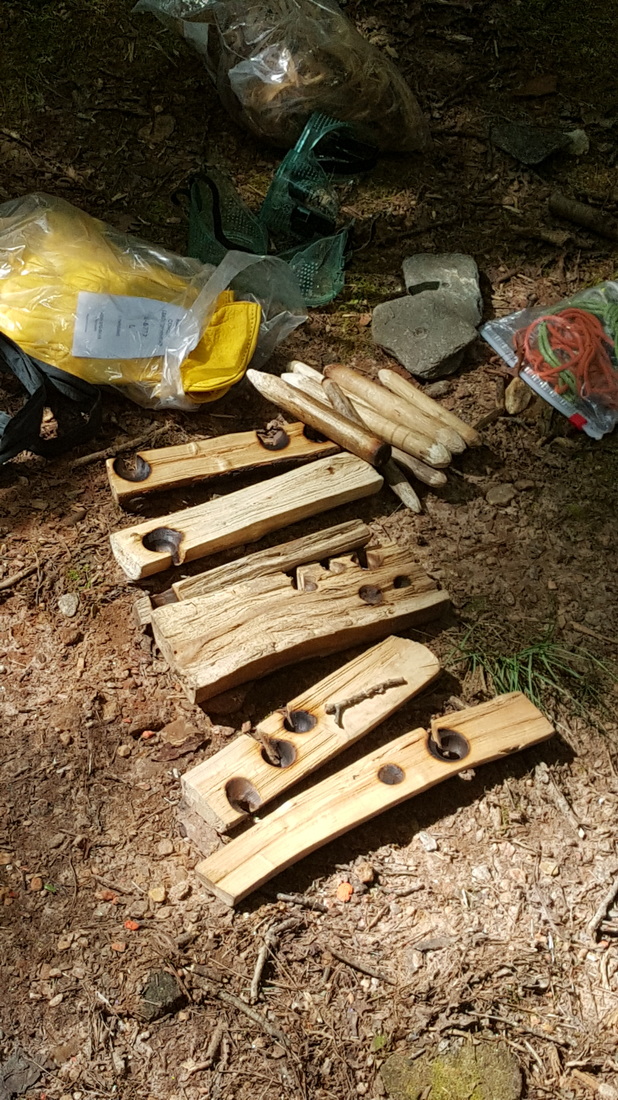
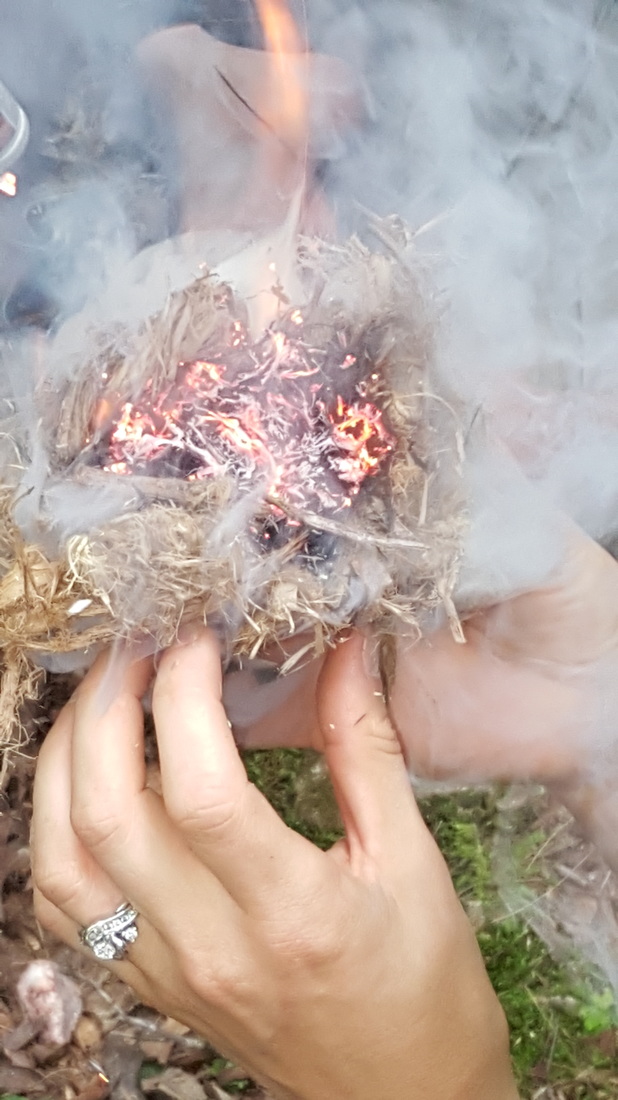

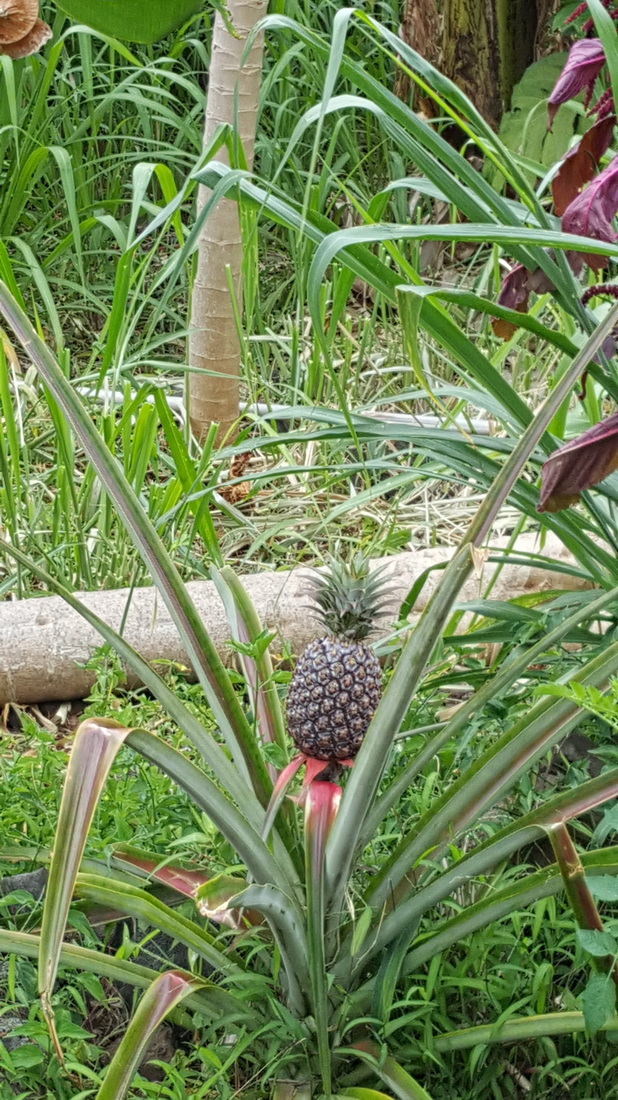

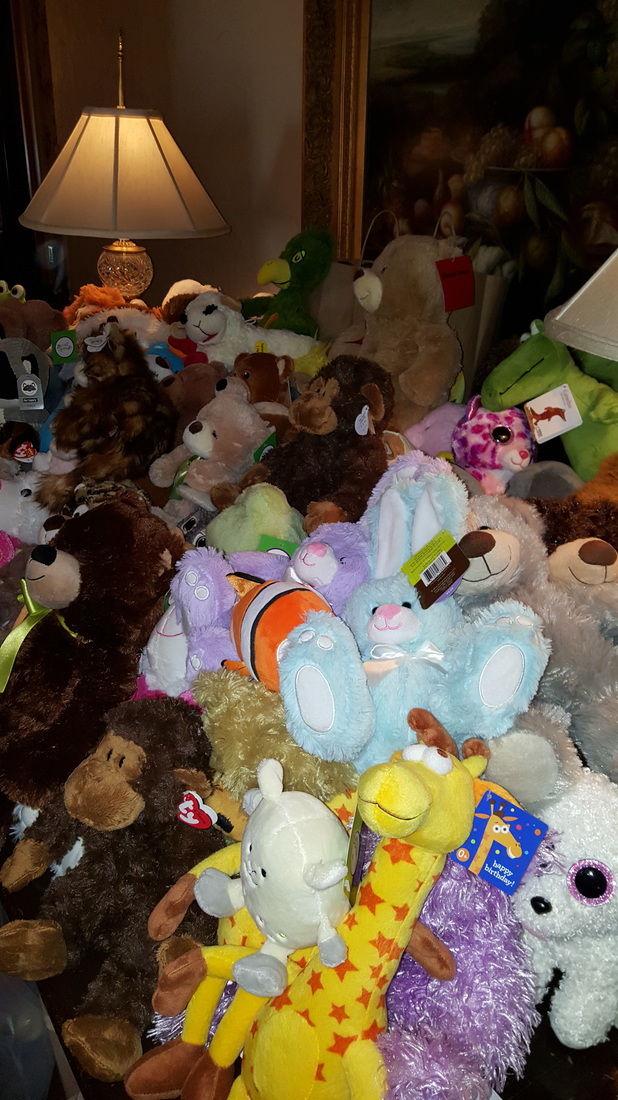

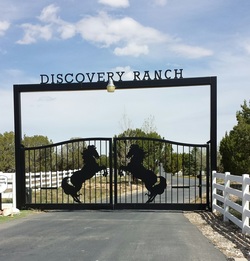
 RSS Feed
RSS Feed